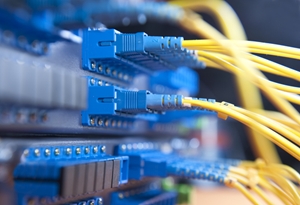Security, cloud computing, big data, mobile and the Internet of Things are defining the network demands of 2015.
The impact of expanding network demands

Preparing existing networks for the aforementioned trends require organizations to ensure their personnel are prepared to expand, protect and configure systems for long-term sustainability. Installing and maintaining network hardware is one thing, but leveraging these assets strategically is a practice both public and private entities should strive to adopt.
Whenever networking is considered, Cisco certainly enters the picture. In recent years, the company has assiduously reviewed how bring-your-own-device trends, cloud technology and the Internet of Things will impact current network infrastructures. While BYOD is associated with numerous security implications, cloud services are obligated to ensure their customers can access data and applications as quick as they would through in-house systems.
Cisco certifications
Network administrators who have worked with Cisco’s technology know just how versatile the firm’s business model really is. While Cisco provides systems designed to support data center traffic, it also builds hardware that allows long-distance voice communications to occur.
Educating professionals on how to work with Cisco’s diverse profile of technologies has been one of the firm’s priorities for some time. According to the company’s website, there are five network certification levels IT professionals can strive to obtain:
- Cisco Certified Entry Networking Technician: Acknowledges that a person has obtained a basic understanding of Cisco’s networking technology.
- Cisco Certified Network Associate: States that an individual is familiar with network installation, operations and troubleshooting.
- Cisco Certified Network Professional: Certifies a person has demonstrated the wherewithal to work with specific technologies, which are stated below. It is assigned to senior network design engineers, analysts, principal systems engineers and other high-level professionals.
- Cisco Certified Internetwork Expert: Recognizes network admins for their skill in regard to network engineering, as well as their mastery of Cisco solutions and products. Certificate holders possess the wherewithal to satisfy business needs through network design.
- Cisco Certified Architect: The highest certification level Cisco offers, allowing people to formally showcase their knowledge of networking technology. Those holding this certification have used Cisco’s networking technology to support business strategies and enhance network infrastructures.
From the Associate level upward, networking subject matters become more diverse. Professionals can obtain various levels of accreditation in routing and switching, data center networking, security, service provisions, video, voice and wireless data communications.


